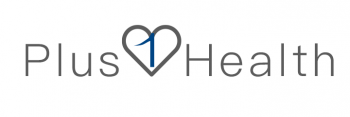1. Stroke
The higher the blood pressure of hypertensive patients, the higher the incidence of stroke. Hypertension patients have the pathology of arteriosclerosis. If the cerebral arteriosclerosis reaches a certain degree, combined with temporary excitement or excessive excitement, such as anger, sudden accidents, intense exercise, etc., the blood pressure rises rapidly, the cerebral vessels rupture and bleed, and the blood overflows into the brain tissue around the vessels. At this time, the patient immediately becomes unconscious and falls to the ground, commonly known as stroke. If a patient with hypertension suffers from dizziness, headache, nausea, numbness, fatigue and other symptoms due to excessive exertion, anger and emotional excitement, he/she should be highly suspicious of the possibility of stroke. At this time, the patient should be immediately sent to the hospital for examination.
2. Renal arteriosclerosis and uremia
Hypertension has a close and complex relationship with kidney. On the one hand, hypertension causes kidney damage; On the other hand, renal damage aggravates hypertension. Hypertension and kidney damage can interact and form a vicious circle. Hypertension with renal failure accounts for about 10%. Sudden development of hypertension can cause extensive diffuse renal arteriolar lesions, leading to malignant renal arteriosclerosis, which rapidly develops into uremia.
3. Hypertensive heart disease
Arterial pressure continues to rise, increasing the burden on the heart, and forming compensatory left ventricular hypertrophy. Hypertensive heart disease occurs when hypertensive patients are complicated with left ventricular hypertrophy. The disease eventually leads to heart failure.
4. Coronary heart disease
Blood pressure changes can cause imbalance between myocardial oxygen supply and oxygen demand. In patients with hypertension, blood pressure continues to rise, left ventricular afterload increases, myocardial strength increases, and myocardial oxygen consumption increases. When coronary atherosclerosis is combined, coronary blood flow reserve function decreases, and myocardial oxygen supply decreases, so angina, myocardial infarction, heart failure.
5. Causes eye damage, even blindness
If the blood pressure increases for a long time, the retina may suffer from hemorrhage, exudation and edema, and in severe cases, the optic nerve nipple edema may occur. For a long time, it can cause patients’ visual impairment, such as unclear vision, distorted or smaller vision, and even lead to blindness in serious cases.
Early screening, early diagnosis, and early control of blood pressure within the target range through lifestyle and drug treatment are of great significance for the maintenance of various organ functions and physical health.
There is a free heart rate monitor app – “AFibCheck“, which can be downloaded and used after searching in the mobile app store. It is simple and convenient to operate.
